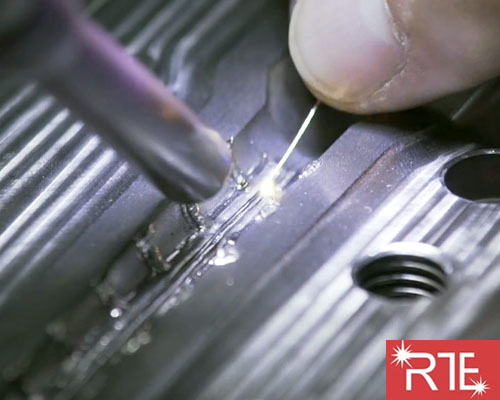Mould Welding Repair Solution Service in Chennai
Mould Welding Service in Chennai –Royal Tech Engineering gives a prominent service of Mopa Laser. We offering top-quality Mould Welding Service.
Mould Welding Service in Chennai – ROYAL TECH ENGINEERING Mould is a premier Injection Moulding & Automation consultant and Mould Supplier from concept to manufacturing Mould in Chennai. We are a company that has the manufacturing resources and expertise to transform concepts into manufacturing technology and process. From our local and international centres we provide efficient and timely engineering and manufacturing services to national and international customers.
Royal Tech Engineering not only provides high-quality products and solutions but also provides perfect after-sales and follow-up services for each customer. At every stage of machine setup, you will be supported by our professional staff. We’ll help you understand installation and operation, and optimize the process to get the best out of your machine. Our engineers can also come to your workshop for installation and training if necessary.
The Mopa Laser Marking Machine is better abbreviated as (Master Oscillator Power Amplifier). And its working mechanism includes an optical amplifier, which creates laser beam pulses. Its frequency ranges from 20 kHz to 1 MHz. It is best suited for metallic surfaces, such as stainless steel, gold, and many others, and helps with marking and engraving needs. It includes natural, colored, and black markings without damaging the metallic surfaces.
MOPA Fiber Laser:
- Common fiber lasers and solid-state lasers use mirrors to resonate and amplify the laser. The laser is output by Q-switching. Using this technology, it is difficult to produce a reliable, durable laser with high quality and flexibility. MOPA all-fiber lasers eliminate the resonator structure and enable a high-quality beam with stability, durability, and flexibility.
- SIL provides Industrial, Industrial Enclosed and Desktop Fiber Laser Marking Machine models.
- When we talk about LASERS, we must keep in mind three macroscopic measurement parameters:
Laser pulses are usually fixed: with standard fiber lasers, a pulse has a duration of about 120 ns, while the pulse frequency varies from 20 to 100 kHz.
Frequency (or rather the number of pulses in relation to a length of time) -> kHz
- Power-> W
- Speed-> mm/s (or px/s)
Instead, with MOPA lasers, pulse duration varies and can be set in a range from 4 to 200 ns, with a frequency ranging from 20 kHz to 1 MHz The short pulse is especially useful for marking on plastics, as it prevents burning the material by avoiding direct contact.
FAQ’S?
What does laser marking do?
Laser marking can mark a variety of materials such as steel, aluminum, stainless steel, polymers, and rubber.
Is laser marking permanent?
In simplest terms, laser marking is a permanent process that uses a beam of concentrated light to create a lasting mark on a surface. Typically performed with a fiber, pulsed, continuous wave, green, or UV laser machine, laser marking encompasses a wide variety of applications.
How is laser cutting priced?
The laser cutting costs are based on the time your file takes to cut in the laser.
How deep is laser marking?
When it comes to deep engraving, the depth can easily reach a few millimeters into metals.
How fast is laser marking?
Laser marking machines have always been considered very fast devices at various marking speeds, but they also have limitations. The theoretical speed of the manufacturer is 9000mm/s, and some marking opportunities are lower than this speed, about 7000mm/s.
Can laser engraving fade?
Soft metals such as copper, brass and aluminium are more prone to engraving fading than harder metals such as stainless steel and other materials. For glass engraving, the quality of the glass will affect longevity.







